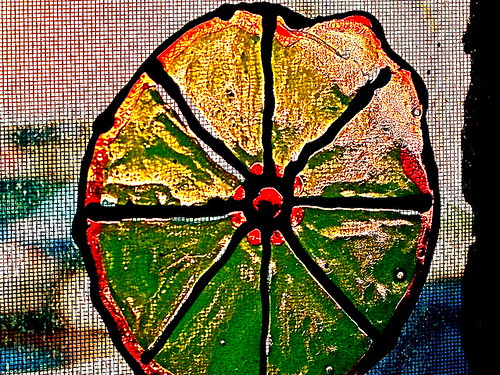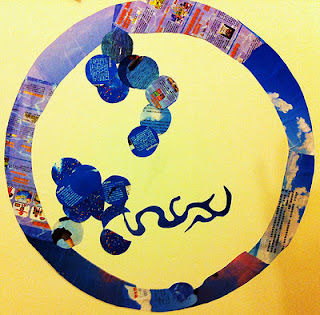After learning about
Sugata Mitra's Hole in the Wall experiment, I started thinking about how the context of Self-Organized Learning Environments would help my students. Last March we created a SOLE in our fifth grade math class. Watch this TED Talk by Mitra...
My colleague Joel and I both teach fifth grade this year, but last year Joel was a substitute teacher and spent some time in my classroom teaching math in our SOLE. This year he contacted me with questions about implementing a SOLE in his new math class at a different school, and now the ball is rolling for both of us in an action research project we're sharing between our classes.
The nemetic process began for us by noticing a few things about kids in our math classes. We saw many similar challenges between them. To start we noticed that roughly 65% of our students would have little trouble achieving an acceptable standard in grade five math. What we mulled together though is could these kids do more than acceptable? We think they can.
Next we noticed that about 15% of each class appeared very competent as math learners capable of high achievement. We asked ourselves how to define high achievement and agreed that perhaps we can't really define that. We asked what if there was no limit to how much any child can learn, and that perhaps in our traditional math classes we were placing a false ceiling above these kids. We resolved to do more for them by letting them go.
We then realized that the remaining 20% of our students appeared to struggle with the math content we were teaching in a traditional way. We noticed that they typically fell behind the pace of instruction, and that they appeared anxious and confused much of the time during class. We also noticed that despite their challenges learning math, they were also in most cases the least likely to ask us for help, or work willingly with their parents at home on any extra study activities to reinforce what they were missing.
Joel and I mulled these observations and decided to apply a SOLE philosophy to our respective math classes, and then collaborate in reflection about how to fine tune our process. Joel shared this with his students last week, and I thought it was a great summary of our process...
Self-Organized Learning
Expectations:
1. Work in groups constructively and cooperatively
2. Talk (30 cm voices)
3. Ask questions if you do not know.
4. Help other students who need it.
5. Finish assignment, check and correct answers.
6. 3 choices when done
a. Help other students having trouble (most important)
b. Continue on to next lesson
c. Ten Marks Math (if we have computers and if you’ve earned it).
I added a step to #5 "...and then show your finished work to Mr. Grainger," but for the most part I am operating under the same SOLE process in my class, so now we get busy.
I already have three students who have done a great job self-assessing previously held knowledge and skills which have enabled them to move ahead of the instructional pace I have established. They have, after not quite two units of instruction, been able to challenge themselves and work ahead. They have also been very responsible about picking choice A under step 6 of our SOLE process, and have been routinely learning through teaching their peers about math they have mastered in relative degrees. They are engaging in math in ways they haven't before.
We're also noticing that the kids who typically struggle are appearing less anxious in class as a result of the increase in access points for help. The classroom is a bit louder as a result of all these math conversations going on, but I'm totally fine with that... I like Joel's "30 cm voices." Joel and I are now more free to roam the class and provide guidance where necessary. We teach to the whole class with direct instruction one lesson at a time as our syllabus requires to get through the curriculum for grade five.
The biggest change we're noticing though is in the level of engagement of students in both classes, especially the 65% group. Each for different reasons (all good) and in slightly different ways for each individual, our students are more engaged in the kind of math I like... math that makes us wonder, lets us be wrong on the road to being right and that becomes more than what most students seem to think math is... just work. We watched this awesome video at the beginning of the year to reinforce a different perspective toward math...
Indeed as Galileo said, "mathematics is the language with which God has written the universe." We're going to keep harping that message for our students so math may become wonderous. After all, we can't get away from it anyway; it's everywhere. It would be great to hear from others who are experimenting with self-organized learning in their classrooms.













